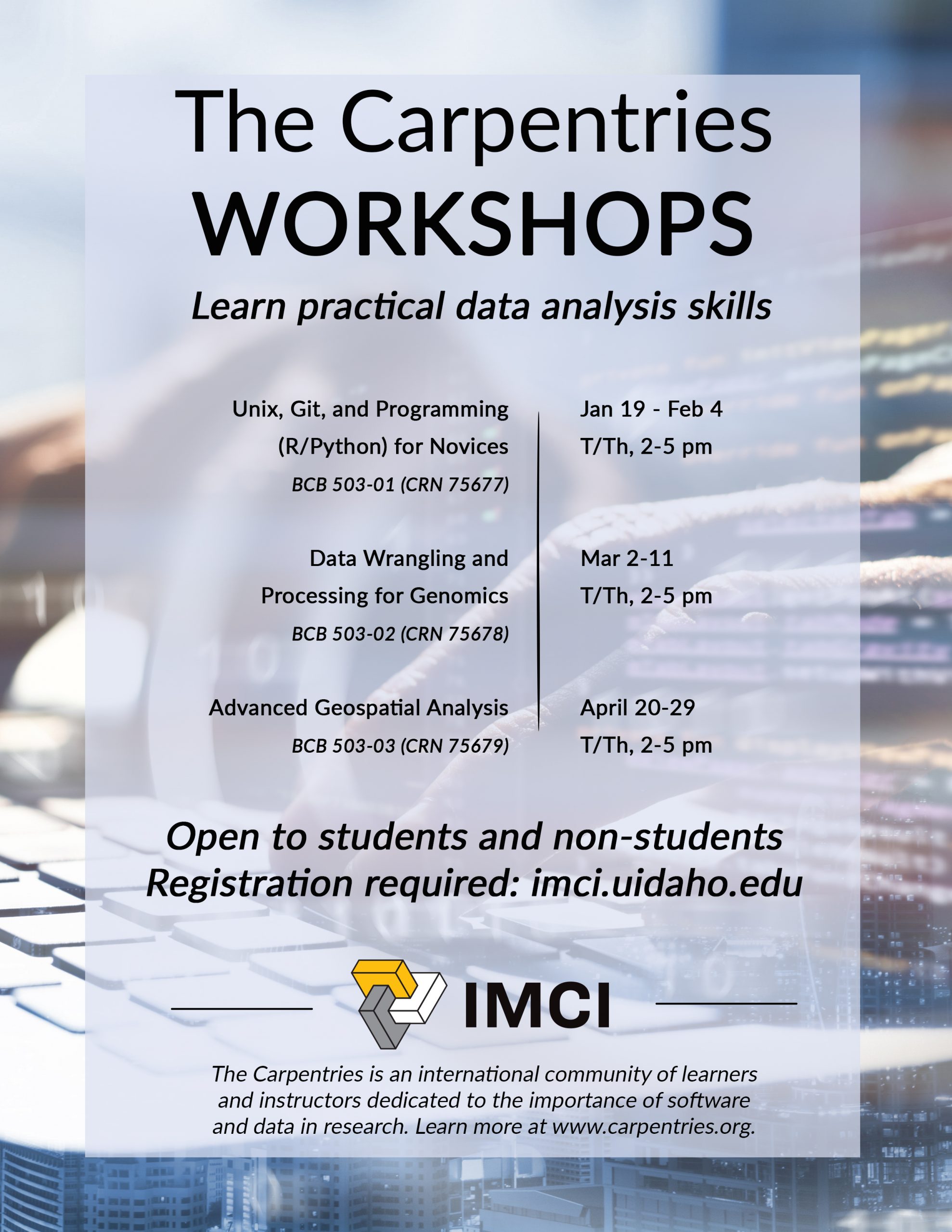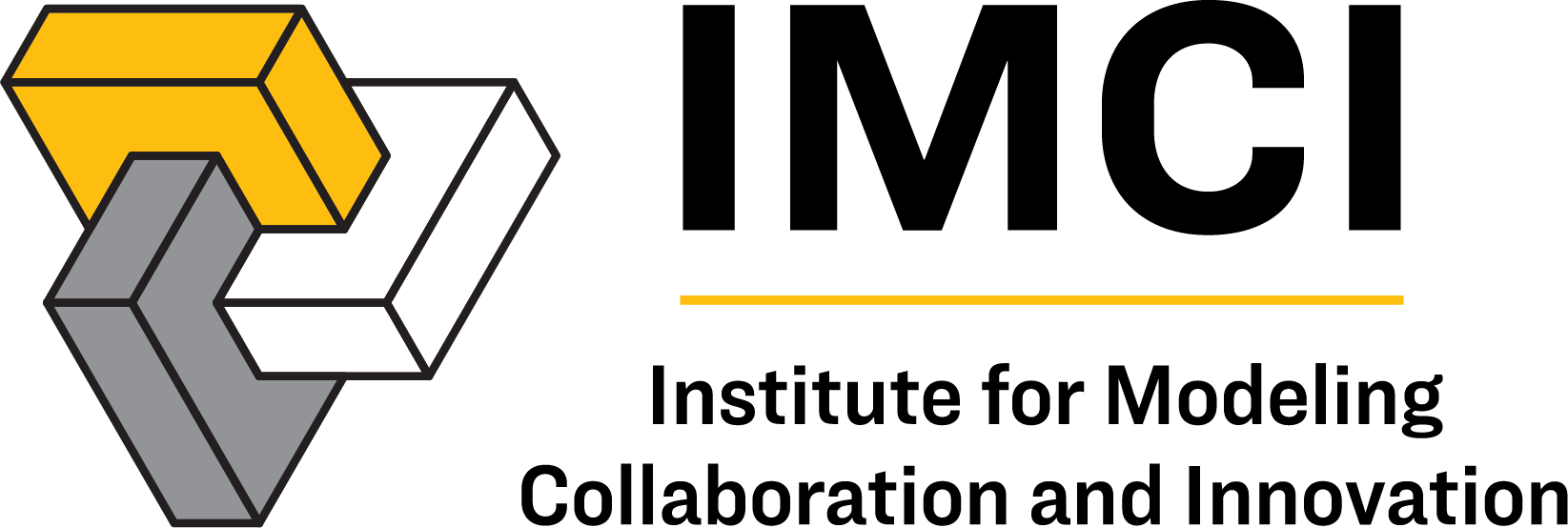Spring 2021 Carpentries Workshops Announced
The Carpentries training program aims to improve data literacy and reproducible science. IMCI sponsors the University of Idaho as a member in the organization.
Postdocs and graduate students will run 3 workshops this spring for upper-level undergraduate students, new graduate students and anyone else interested in good-practices in data management and analysis.
STUDENTS can register for academic credit
Students wishing to take the workshops for credit need to register via the UI course schedule for any combination of BCB 503 01, BCB 503 02, and/or BCB 503 03. Each workshop is 1 credit each.
NON-STUDENTS must also register to attend
If you do not want academic credit, you may attend any workshop for free but must still register. Space is limited.

Unix, Git, and Programming (R/Python) for Novices
Workshop dates: January 19 – February 4; T/Th, 2-5 p.m.
Instructors: Breanna Sipley, Travis Seaborn, Chava Castaneda, Li Huang, Erich Seamon, Angela Crabtree, Akorede Seriki
Description: Software Carpentry aims to help researchers get their work done in less time and with less pain by teaching them basic research computing skills. This hands-on workshop will cover basic concepts and tools, including program design, version control, data management, and task automation in Unix, GitHub, R, and Python. Participants will be encouraged to help one another and to apply what they have learned to their own research problems. The course is aimed at graduate students and other researchers but is open to all. You don’t need to have any previous knowledge of the tools that will be presented at the workshop. Participants must have a laptop with a Mac, Linux, or Windows operating system (not a tablet, Chromebook, etc.) that they have administrative privileges on. All participants should attend the Unix/Git sections (first week). The R (second week) and Python (third week) sections will each be taught as independent sections.
View Code of Conduct, Detailed Schedule & Set Up Requirements
Data Wrangling and Processing for Genomics
Workshop dates: March 2-11; T/Th, 2-5 p.m.
Instructors: JT Van Leuven, Angela Crabtree, Lukas Grossfurthner, Amanda Stahlke, Travis Seaborn, Breanna Sipley
Description: Data Carpentries aims to teach researchers basic concepts, skills, and tools for working with data so that they can get more done in less time, and with less pain. This hands-on workshop will cover basic concepts and tools, including best practices for organization of bioinformatics projects and data, use of command-line utilities, use of command-line tools (shell and R) to analyze sequence quality and perform variant calling, connecting to and using cloud (AWS) computing, and visualizing genomic data. The course is aimed at graduate students and other researchers but is open to all. While the course is designed for learners that have no prior experience with the tools covered in the workshop, some familiarity with biological concepts (DNA, mutation, population variation) will be useful. Participants must have a laptop with a Mac, Linux, or Windows operating system (not a tablet, Chromebook, etc.) that they have administrative privileges on.
View Code of Conduct, Detailed Schedule & Set Up Requirements
Advanced Geospatial Analysis
Workshop dates: April 20-29; T/Th, 2-5 p.m.
Instructors: Erich Seamon, Li Huang, Travis Seaborn, Lukas Grossfurthner
Description: This hands-on workshop will focus on managing and understanding spatial data formats, understanding coordinate reference systems, and working with raster and vector data in R for analysis and visualization. The course is aimed at graduate students and other researchers but is open to all. Participants will be encouraged to help one another and to apply what they have learned to their own research problems. Introductory knowledge of R is suggested.
View Code of Conduct, Detailed Schedule & Set Up Requirements






